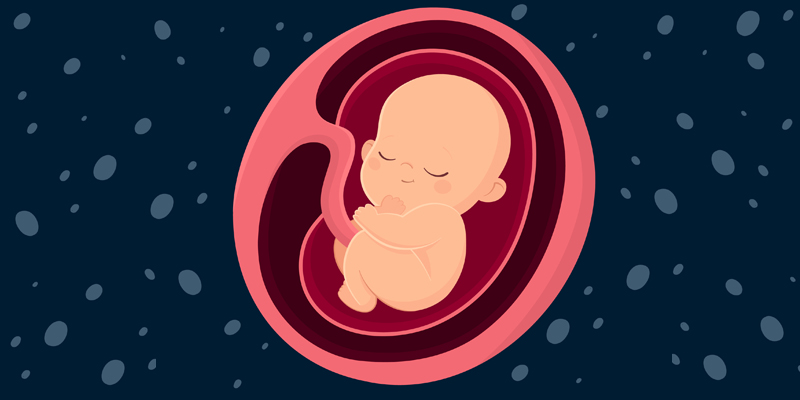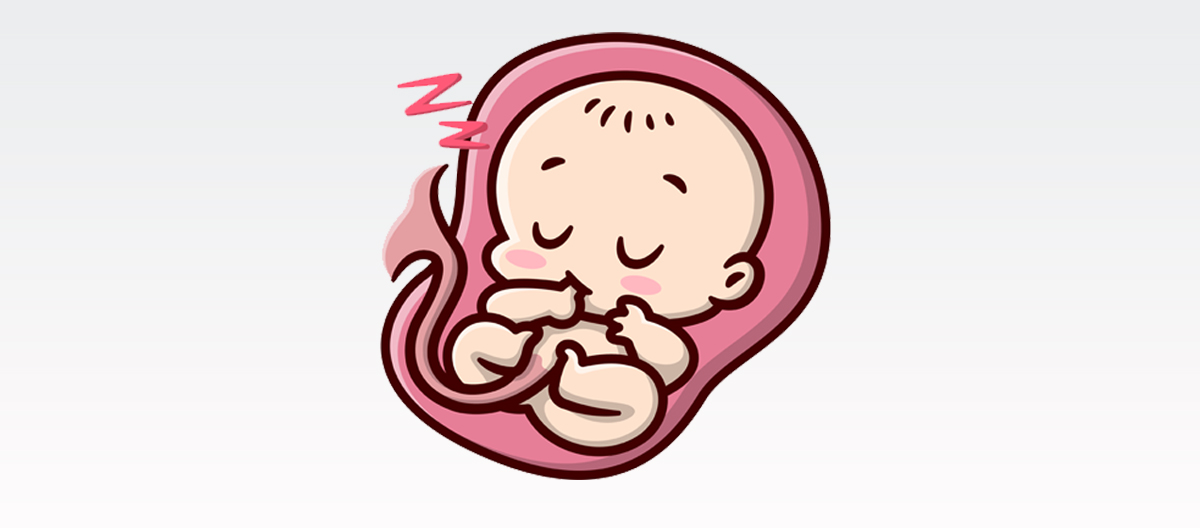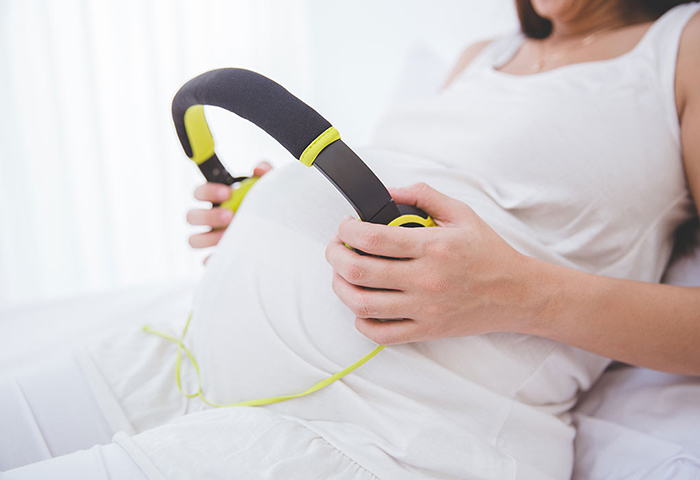When Can Your Baby Hear In The Womb?
You shouldn’t be surprised to hear that your little one who lives in your womb right now could probably be listening to everything that is happening around you. Turns out these sneaky little fetuses are capable of listening to and even identifying different sounds around them.
Fetal milestones are always fascinating even if you know exactly what to expect and when to expect them. Did you know that your baby can appreciate music, know when you are angry and bond with you over sound when they are in the womb? Are you curious about when it begins and how they develop these senses?
Every new mother tries to talk to their baby in the womb. Don’t worry; it is completely fine. It is encouraged. Your baby develops the sense of identifying different sounds around them when you are in the second trimester of your pregnancy.
Why do babies have the ability to listen to sounds in the womb?

The simple answer is evolution. When they enter the world, they are going to be bombarded with plenty of noises and sounds all around them. From loud squeaks to screeching shrieks, there is no telling what the baby will have to listen to in the outside world. To prevent themselves from being overwhelmed, the sensation of hearing develops in the womb.
There is another good reason why babies can hear when they are in the womb. They learn to recognize their mother’s voice and respond positively to the same. This is an important survival advantage that babies have and need when they are born. If they are familiarized with the sounds of their parents, this will also improve the bonding between you and them.
When do babies start to hear in the womb?

Around the 18th week of pregnancy, the structural parts of the ear that help with hearing start to develop. The baby might not be able to identify distinct sounds or understand anything at all but they do hear this and that. Some of the things that they listen to include the sounds coming from your stomach or the air passing in and out of your lungs. Around this time, they have no idea that the outside world exists and they cannot hear anything from there either.
Sounds from outside the womb are appreciated as the pregnancy progresses a bit further. Your baby does not understand where the sound is coming from but they can hear things that are going on around you- like people speaking, music playing and everything else nearby. Somewhere between the 27th and 30th week, your baby begins to respond to the sounds that they are listening to.
When can your baby hear “you”?

From the time that they start hearing sounds, they hear you. It is quite simple. Your baby knows all your sounds inside and out. Your voice is the clearest to them and they can identify your voice and distinguish it from others. This is evident when the baby is born and they respond very positively to your voice when compared to other people speaking.
For the baby, your voice is amplified because of the structure of the uterus and the internal organs that reverberate any sound passing through them. Certain studies clearly show how the fetal heart rate increases when the mother speaks as opposed to other voices and other people speaking.
Partners of mothers, you need to spend more time talking to the womb not worrying about how ridiculous it looks. It is not like your baby is going to understand anything that you are saying but they will be able to recognize your voice and learn your voice as well.
Will loud sounds scare the baby in the womb?

You don’t have to worry about loud sounds scaring your baby in the womb. Go ahead and enjoy the concert and the baby shower. Loud sounds cannot reach your baby because they are suspended in amniotic fluid. Sound is muffled greatly when it enters the womb and gets absorbed by the amniotic fluid.
That being said, some babies have a chance of developing certain hearing defects if they are exposed to prolonged loud noises throughout the pregnancy. No loud noise should be played for more than eight hours if you are pregnant. The maximum noise levels are best maintained under 80-85 decibels. Any noise louder than this, like hundred decibels, should be avoided completely, and if that is not possible, must not exceed one hour.
Conclusion
Now that you know that your baby can listen to you and even know that it is you, you can spend your time talking to them, singing to them and reading them stories. The more they listen to you, the better for both of you.
